Whether it’s your first visit or your tenth, Japan’s unique way of doing things always surprises. To ensure you get the most out of your time in Japan, we’ve put together some handy Japan travel tips and hacks covering everything you need to know.
1. Tipping is not part of Japanese culture.
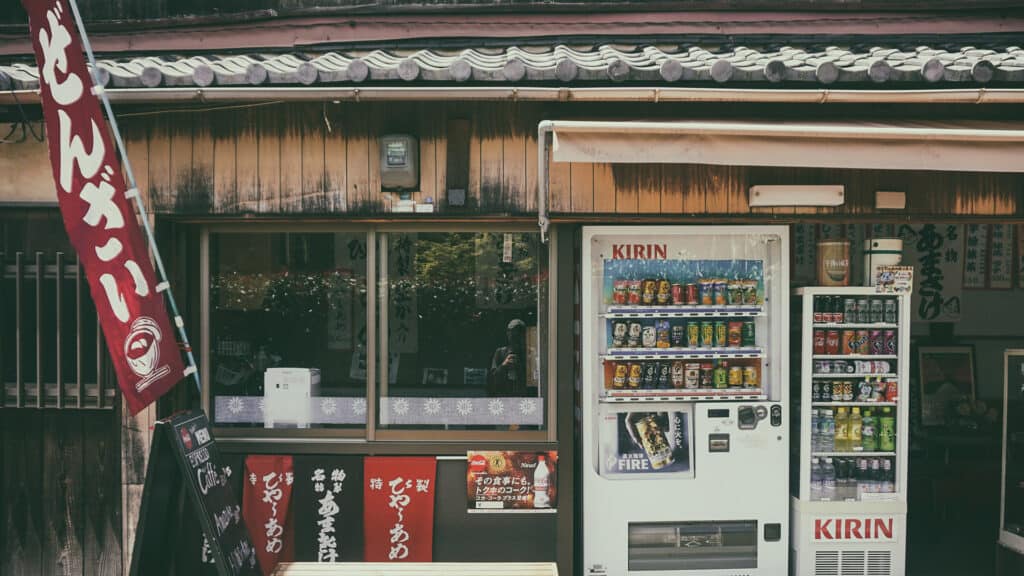
None of the restaurants, hotels, or any establishments require tipping. Even if you try to tip, most of the time, you will get rejected. Even if the change is only 1 yen, basically 1 cent, they will give you the change. Some shops and restaurants have a tip jar for loose change, so if you’d like, you can put your tips there.
2. Smoking is only allowed in certain areas in Japan.
There are outdoor smoking areas, which are clearly marked. There are indoor smoking rooms inside buildings and shopping malls, and you can usually find their whereabouts on the map. Smoking indoors is allowed in a lot of establishments, especially in izakayas. Although new laws have been implemented and smoking indoors is no longer allowed in some places, there are still many restaurants, izakayas, and especially small local bars that allow smoking.
3. Tattoos are taboo in the country.

Tattoos used to be heavily associated with the Yakuza, the Japanese mafia, and therefore seen as quite taboo. Over the past years, tattoos are slowly becoming more and more accepted. However, if you have tattoos, there are a lot of establishments, especially onsen (hot springs), that won’t allow you to enter. To find out more about travelling in Japan with tattoos, check out our blog post about the subject.
4. Use Coin lockers.

There are plenty of coin lockers in Japan, scattered throughout train stations, around them, in shopping malls, buildings, and on the streets. For those of you with lots of luggage or who’ve indulged in too much shopping and need to lighten the load, these coin lockers are a lifesaver!
5. Have your luggage delivered.
If your purchases won’t fit in your luggage or if it’s too heavy, you can use delivery services such as Japan Post or Yamato to send your packages home. You can usually find cardboard boxes in supermarkets to pack up all your extra belongings.
6. If you need help, go to a koban.
You’ll find many koban (police boxes) situated around Japan, usually close to stations and main city areas. If you’re lost or need assistance, don’t hesitate to seek them out. While they might not always speak English, they can generally offer help. Japan is generally very safe, so you don’t have to worry too much. Stay cautious and learn more about Japan safety here.
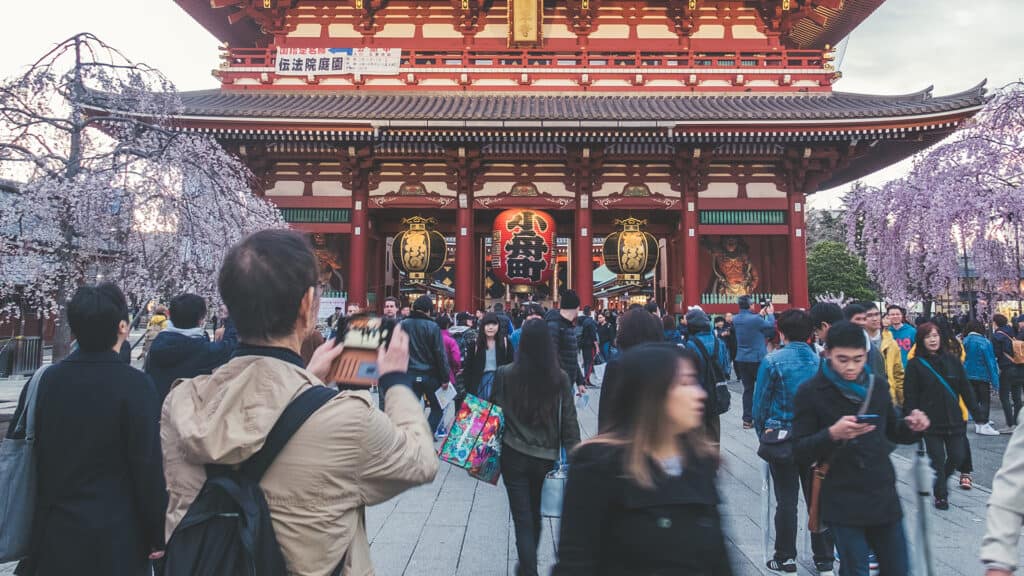
7. Japanese people are hesitnant to say ‘no’.
You’ll hardly ever hear the word “no” spoken in Japan. Whether you’re in a shop or asking about restaurant availability, they’ll rarely give a direct “no”, opting instead for a polite “hmm” or “that’s a bit difficult”. Just know, these are the Japanese ways of saying “no” politely.
8. Don’t eat while walking.
Eating while walking isn’t common in Japan. Even in areas with lots of street food, like Takeshita Street or Nakamise Shopping Street in Asakusa, there are usually designated spots for enjoying your food before strolling on.
9. Observing Japanese greetings.
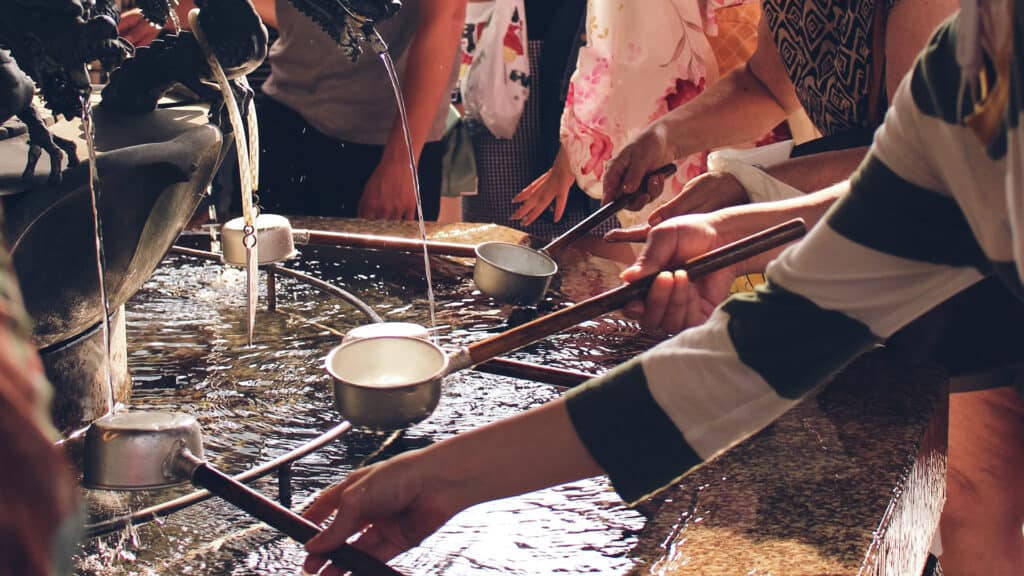
As you probably know, Japanese people bow or nod when greeting one another, especially towards customers. The low bow they do shows respect, particularly towards customers. Don’t worry about bowing too deeply; a slight bow or nod will do.
10. Take off your shoes.
If you enter someone’s home, remember to take off your shoes. Most schools and some hospitals, clinics, restaurants, and companies also require shoe removal indoors, with indoor slippers provided.
11. Don’t talk on the phone in public transportation.
There’s an unspoken rule against talking loudly or on the phone on public transportation. Most people keep to themselves.
12. Know which side to walk on.
When walking around Tokyo, remember to stick to the left side of the street. Most people follow this convention. When riding an escalator, stand on the left and walk on the right.
13. Know where to get Wi-Fi access.
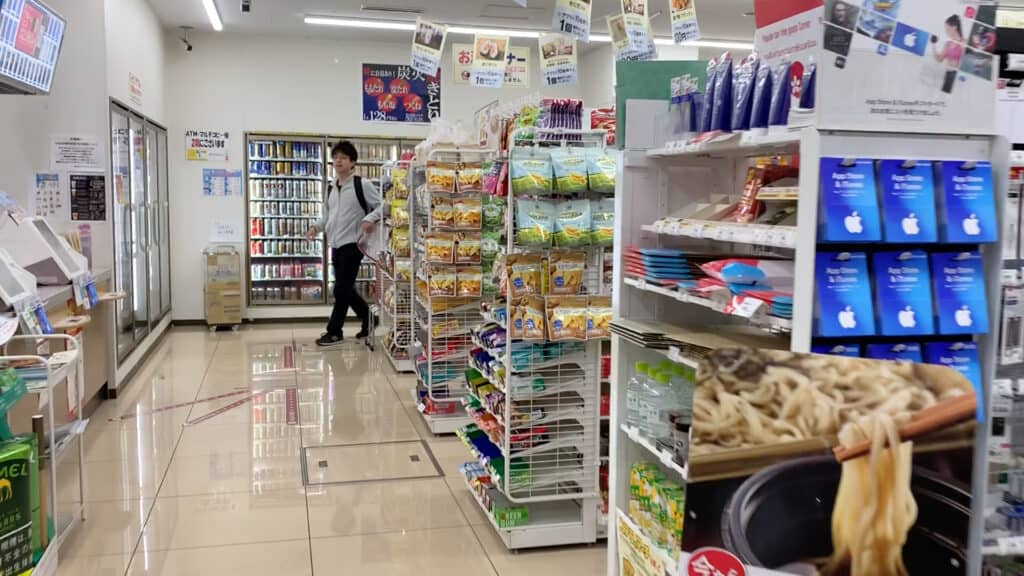
You can access free Wi-Fi in places such as 7-Eleven, Family Mart, Starbucks, and McDonald’s. These spots all boast surprisingly fast and stable Wi-Fi networks. Additionally, there are many free city Wi-Fi networks and department store Wi-Fi hotspots scattered throughout the city.
14. Know where to get sim cards and pocket Wi-Fi.
Sim cards and pocket Wi-Fi devices are available at places like Don Quijote, the airport, electronic stores, and convenience stores. Most of them offer great deals and cater to your needs.
15. Find the right accommodation.
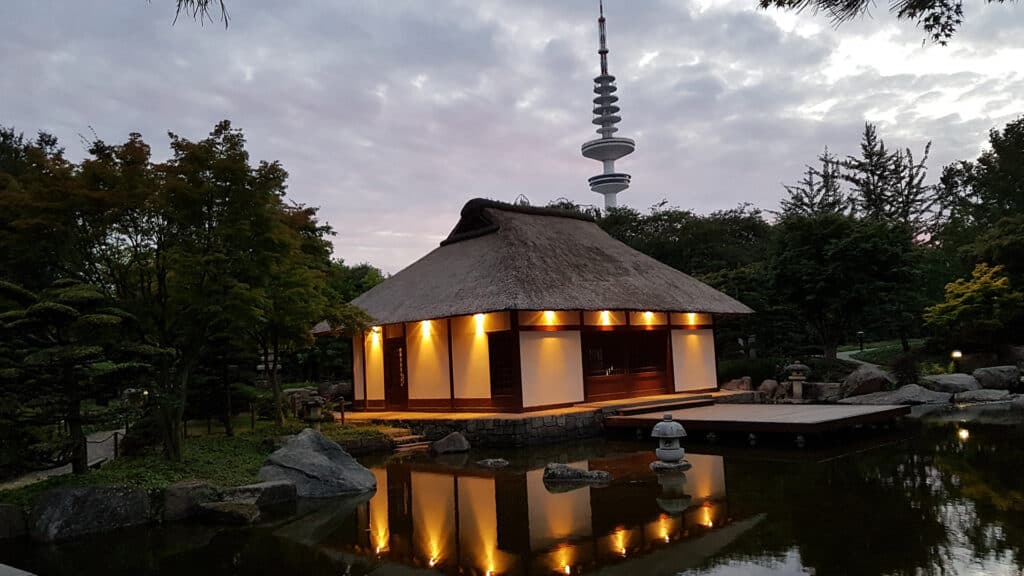
In Japan, you can find hotels, hostels, ryokan, capsule hotels, and Airbnb accommodations. Places within the city centre tend to be pricier, so if you’re looking to save a bit on accommodation, staying a train ride away from the city centre is a great option. For a unique experience, explore themed hotels, traditional Japanese ryokans, and intriguing capsule hotels.
16. Be punctual.
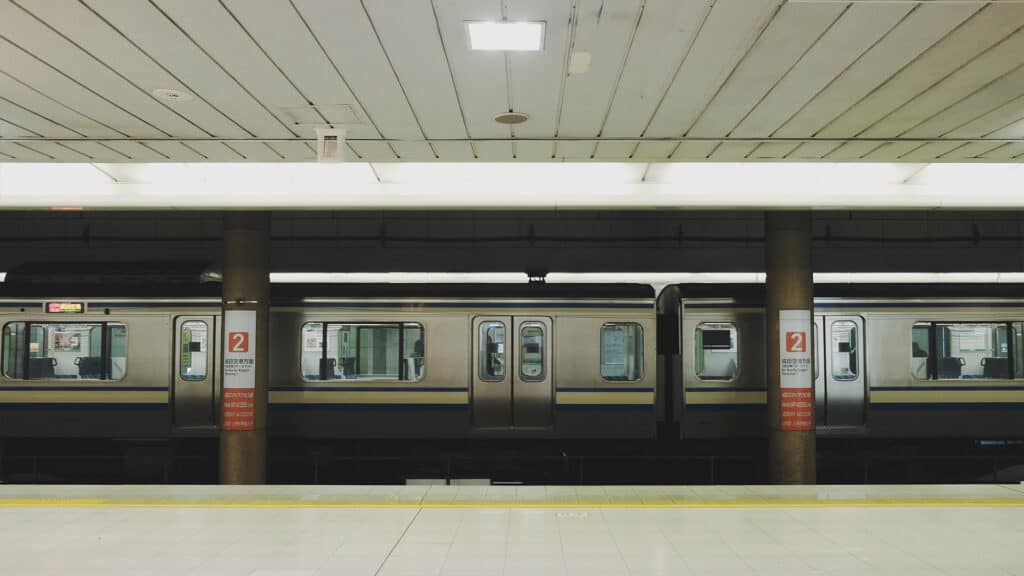
Trains and subway in Japan are exceptional: clean, punctual, and convenient. Remember, they’re extremely punctual, so if you arrive 30 seconds late to the station, you’ll probably miss the train.
17. There are multiple train companies.
Multiple companies run Japan’s train and subway systems. Be aware that certain tickets won’t work at certain stations, so get a transportation card.
18. Use Google Maps.

In major cities, there are numerous train and subway stops. Sometimes, walking just 5-10 minutes can lead you to another station, saving you time and money. Use Google Maps to explore your alternative options.
19. Take advantage of one-day train passes.
Consider one-day passes offered by different train or subway companies. But remember, these passes often only work for that company’s trains. If you don’t take at least three or four trips with the same company in a day, it might be cheaper not to get the pass.
20. Get a JR Rail Pass.

JR Rail Pass is ideal for longer stays and country-wide travel. It covers local trains and bullet trains, which can be costly. However, it’s only valid for JR-operated trains, so assess your travel plans before purchasing.
21. Take the bus.
In certain areas of the country, buses tend to be more convenient than the other forms of transportation. They are not as fast or regular as trains and subways, but don’t be afraid to use them. With most buses within big cities, you pay when you get on the bus. For for some buses, you collect a ticket when you board the bus and pay your fare with your get off.
22. Explore the city on a bicycle.

For exploring cities, especially local areas, cycling is cheap and convenient. Many places in Japan offer bicycle rentals, allowing you to explore parts of the city you wouldn’t normally encounter.
23. Make use of lunch deals.
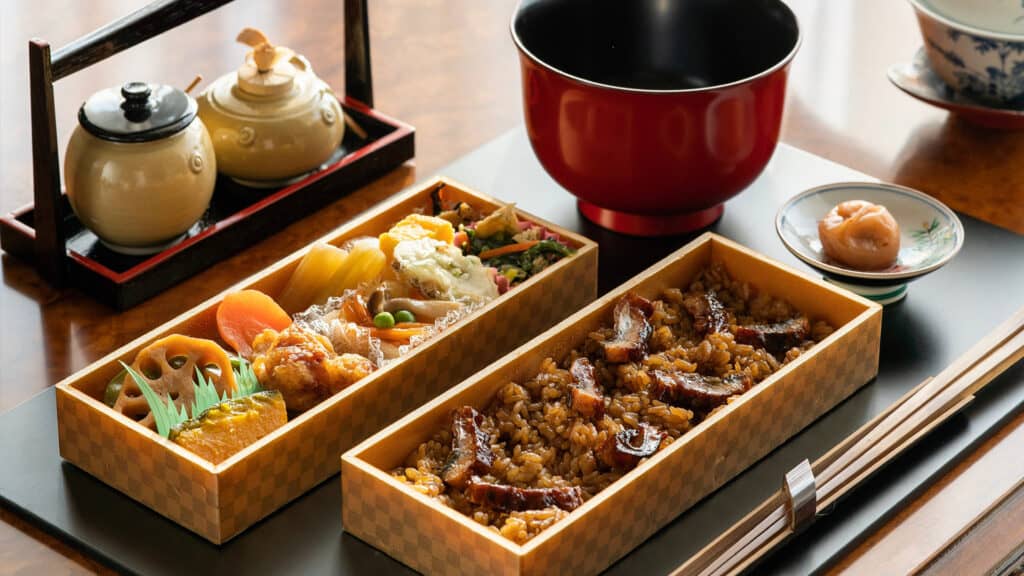
When dining out, look for lunch deals even at high-end restaurants. You can enjoy affordable, delicious, and filling meals.
24. Pig out at all-you-can-eat and all-you-can-drink establishments.
All-you-can-eat and all-you-can-drink places are great for those of you who enjoy a great and filling meal. You get to try out a wide range of food and drinks here. Japan has some of the best deals you will ever find with affordable yet delicious meals.
25. Visit 100 yen shops.
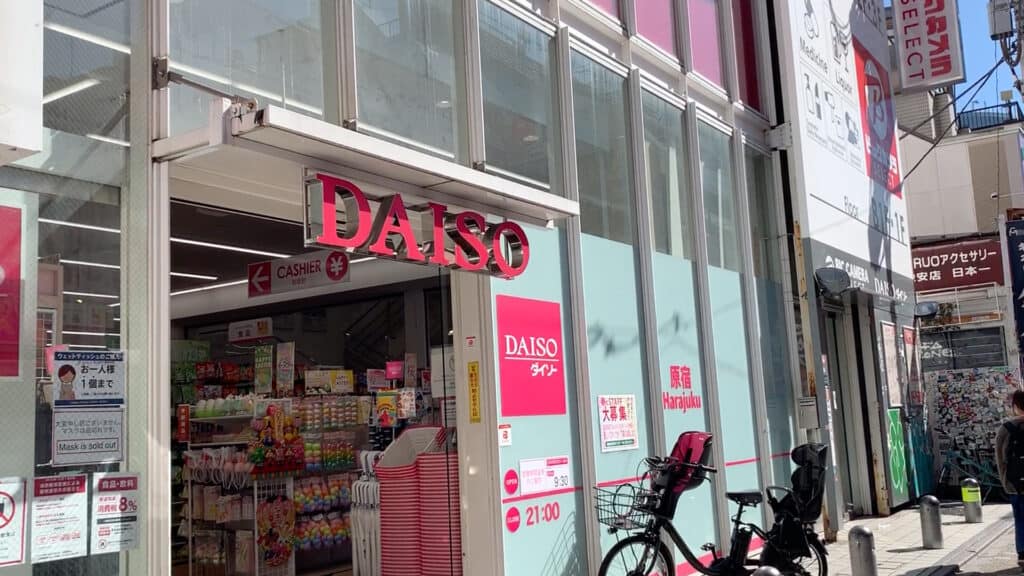
When shopping, consider visiting 100 yen shops, where you’ll find a diverse range of items at affordable prices. Alternatively, Don Quijote offers another excellent option for discounted goods.
26. Shop at Don Quijote.
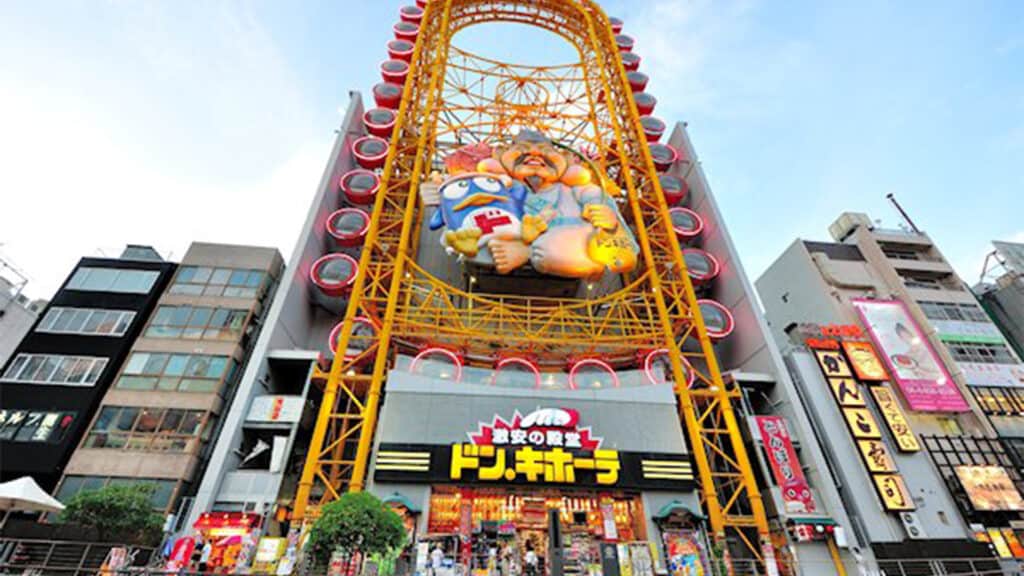
Don Quijote is a great discount store that sells everything. From souvenirs, electronics, health and beauty products, food and drinks, you can find just about everything here for a great price!
27. Convenience stores will be your new best friends.
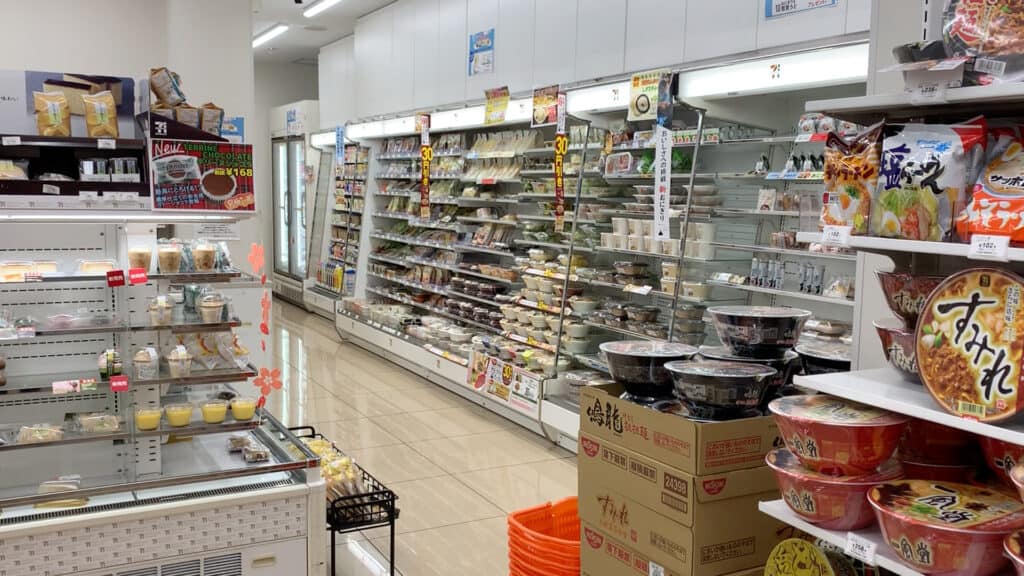
Convenience stores are your best friends in Japan. They are amazing places where you can buy everything from food, drinks, groceries, hygiene products, household products and more. Everything in convenience stores is decently priced and you can find them all around the country.
28. Get a transportation card.
Transportation cards like Suica and Pasmo are essential when travelling in Japan. It makes your travel easier so you don’t have to keep buying individual train tickets. Train rides are also cheaper with transportation cards. They’re definitely essential during your time in Japan.
29. There aren’t many rubbish bins in public in Japan.
If you have been to Japan, you will realize there are no rubbish bins at all in public areas, yet the streets are remarkably clean. While you can find some rubbish bins in train stations or convenience stores, most of the time, you would have to carry your rubbish with you and dispose of it at home. It’s advisable to bring a plastic bag with you to hold your rubbish.
30. Bring your university ID or student card.
Many establishments, including cinemas, museums, shops, and restaurants, offer student discounts. If you’re a student or traveling with one, be sure to bring along student ID cards.
31. Japan is a cash society.

Japan remains largely cash-based, with many establishments not accepting credit cards. Some shops or restaurants impose a minimum purchase requirement for credit card transactions or levy an additional 5-10% fee for card payments. It’s advisable to carry cash when traveling in Japan.
Currency exchange facilities are relatively scarce, primarily found in major city centers or airports. Banks also offer currency exchange services, although the rates may not always be favorable. For cash withdrawal, ATMs are available in major convenience stores such as FamilyMart and 7-Eleven, which are widespread.
32. Bring a coin purse.
Given Japan’s reliance on cash, you’re likely to accumulate a lot of loose change during your time there. Consider getting a coin purse to keep your coins organized. While handling various coins may seem overwhelming at first, take your time to familiarize yourself with them and use them when making purchases to avoid accumulating unused Japanese coins.
33. Keep your passport handy.
If you are travelling in Japan, you can get a lot of tax-free benefits. In a lot of shops, malls and even convenience stores, you will be able to get the 10% consumption tax deducted on the spot. Make sure to bring your passport along so you can get the discount.
Get Set for Your Trip with These Japan Travel Tips
Going to Japan for the first time is an exciting adventure. From the busy streets of Tokyo to the peaceful temples of Kyoto, Japan has many wonderful things to see and do.
To get the most out of your trip, join one of our guided tours. Try the Tokyo Food & Drinks Bar Tour to explore the city’s nightlife and enjoy local drinks. Or, join the Kyoto Must-Sees and Local Gems Tour to learn about traditional Japanese culture. These tours offer unique and memorable experiences.
Planning your trip might seem hard at first, but with some research and preparation, you can make an itinerary that fits your interests. Be adventurous, keep an open mind, and enjoy the kindness and traditions of Japan.
With your bags packed and excitement high, get ready for an amazing journey through Japan. Your first trip to Japan will be unforgettable, full of wonderful memories and experiences. And remember, our Flip Japan Guide tours are here to make your trip even more special. Enjoy your adventure!

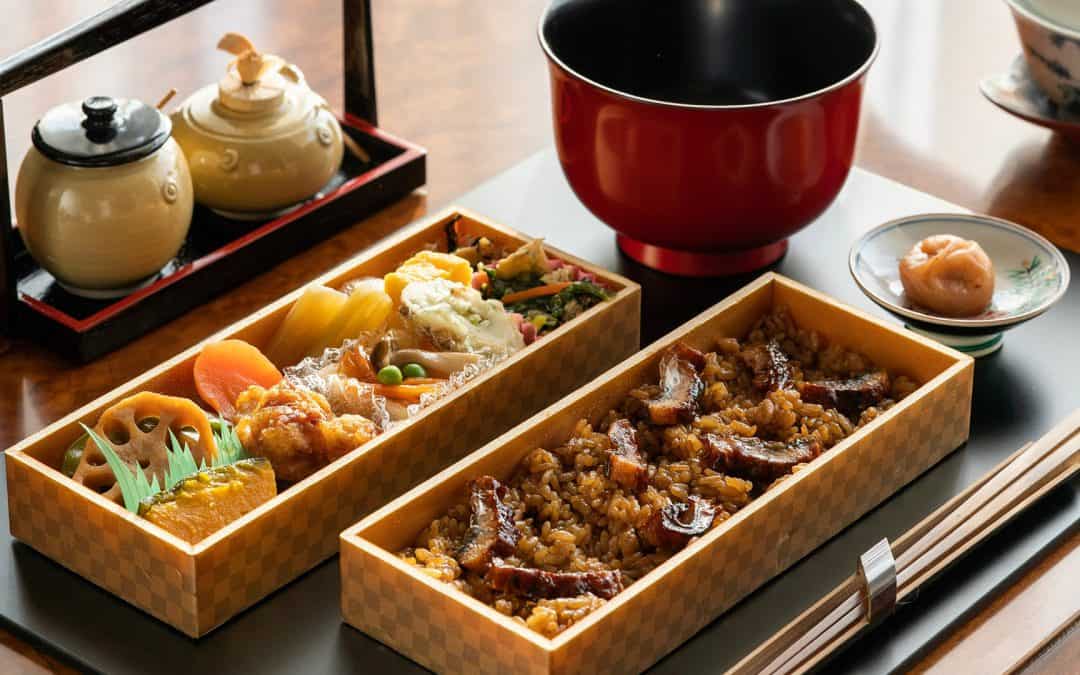
Great Guide to follow!
Good!
Great information.
Good content to read!